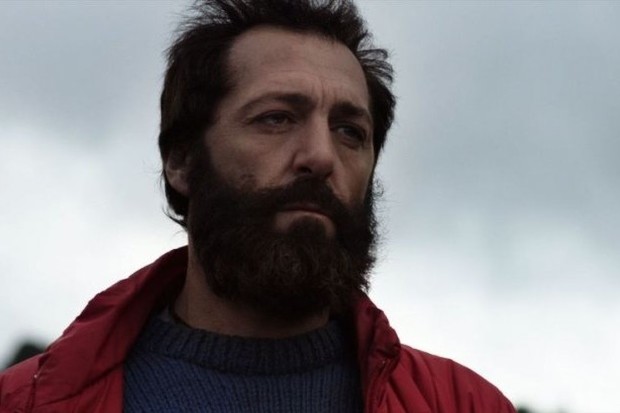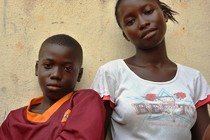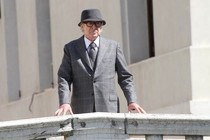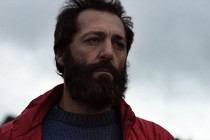Biagio's choice
- With his new film, in competition at the Rome Film Festival, Pasquale Scimeca tells the true story of a man who renounced all his wealth to live in nature and help those most in need

In a society dominated by materialism, unbridled consumption and oppression, is there anything more revolutionary than giving up everything to live in nature, disavowing money and taking care of one's neighbour? This is Pasquale Scimeca's opinion of Biagio Conte: “The most revolutionary man I know, because a revolution is brought about with deeds, not just words”. His story, the story of a man who renounced all his wealth to help those most in need, is narrated in Biagio [+see also:
trailer
film profile], which the Sicilian director presented at the ninth Rome Film Festival, the third Italian film in competition in the Cinema D'Oggi section.
“Before, I had everything and I was never happy. Now, I have nothing, and I'm at peace,” Fra Biagio tells us from the screen. Born to a well-off family in 1963, he lives “preoccupied by worldly things”, a slave to material goods. At 25, taking a good look around himself, he discovers suffering, noticing people sleeping on the floor of the railway station and children playing amidst piles of garbage in the poorest areas of Palermo. He therefore decides to leave his father, mother and family business behind to dedicate himself to the poor, marking the beginning of a long, difficult journey.
Scimeca's film starts at the beginning of that journey, from his first months as a hermit in the mountains of the Sicilian hinterland to his encounter with a shepherd who will become his friend, and another one with a dog (renamed “Libertà”, or “Freedom”) who will always stay by his side; then, his trip to Assisi, following in the footsteps of Saint Francis, during which he eats thanks to people's compassion alone, be they farmers, children or homeless people like him. The hermit slowly turns into a secular missionary who helps others. He then goes back to Sicily, where he founds his first community centre (today, there are three of them).
Why make a film on Biagio? “He didn't want us to make a film about him; he was worried it would be a sin of pride. I persuaded him by telling him that his example could serve as an inspiration to many,” explains the director, admitting that he himself has become more spiritual, too: “The financial crisis we find ourselves in is also a crisis of ideals; it is a problem that affects us all.” Marcello Mazzarella, the actor who, with great sensitivity, plays Biagio, considers him to be an alter ego: “I was also at the bottom of the pile,” he tells us. “I found myself facing huge difficulties; I lived on the streets for three years, and I will never forget the people who helped me out and took care of me.”
From the end of November, Scimeca will start to self-distribute the film – with his company Arbash, which also produced it – also counting on the support of ACEC, a chain of Catholic cinemas that has around 500 screens. Raffaella Di Giulio, of Fandango, will take care of Biagio's international distribution.
(Translated from Italian)
Did you enjoy reading this article? Please subscribe to our newsletter to receive more stories like this directly in your inbox.




















